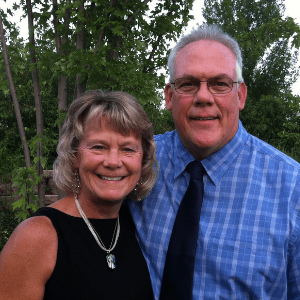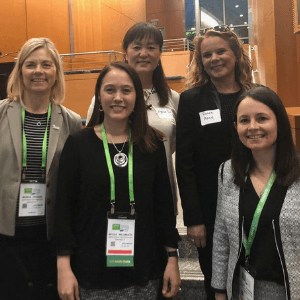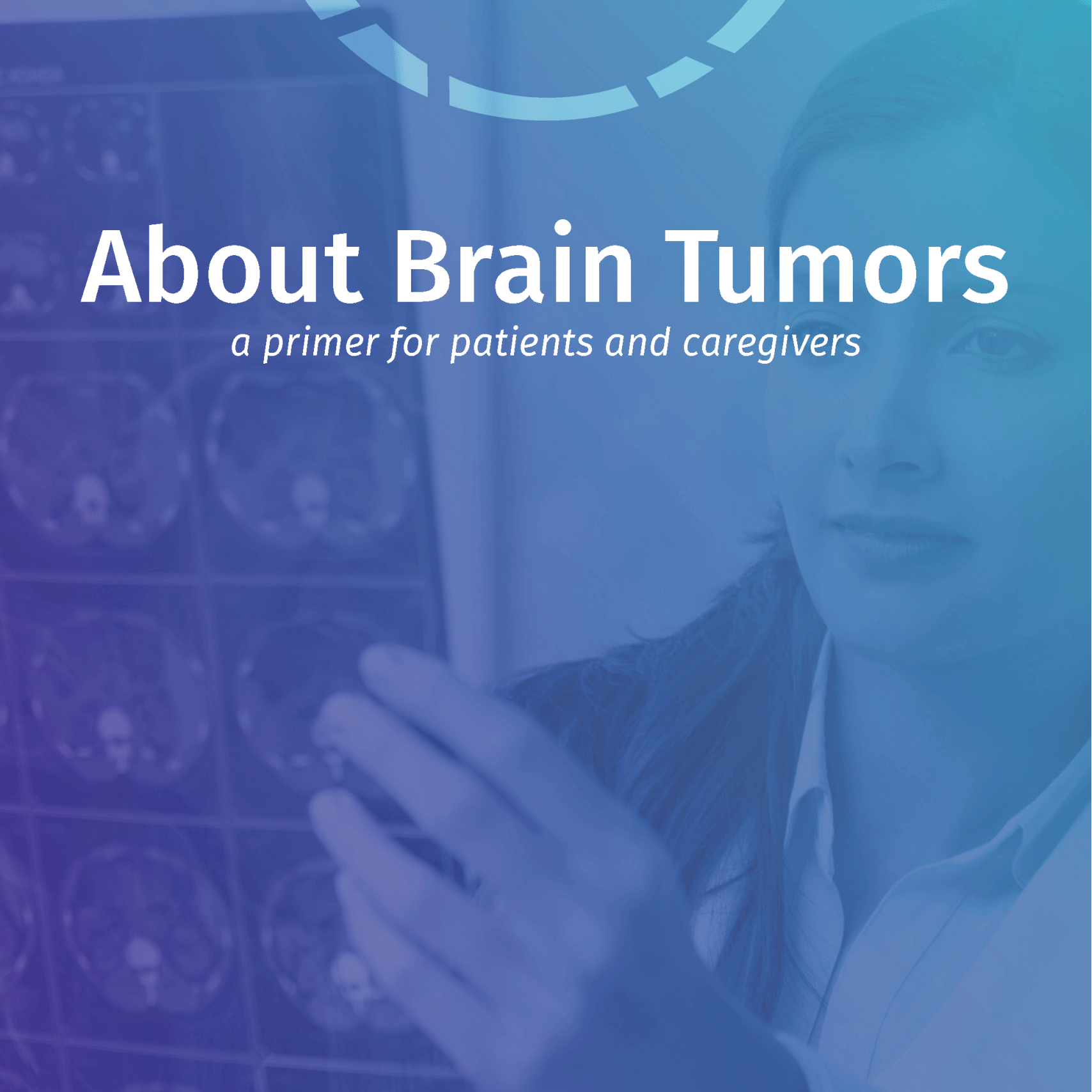One grant at a time, ABTA researchers are unraveling the complexities of brain tumors to help foster major treatment breakthroughs.
In this issue, MindMatters speaks with two emerging researchers whose careers were catapulted through ABTA funding. They share their hopes for future research and what they believe has potential to transform current treatments.
Through the ABTA Research Program, more than $34 million has been awarded to support innovative projects among both early-career and established scientists in the U.S. and worldwide. The ABTA also nurtures brain tumor science through its Alumni Research Network (AARN), a dedicated group of ABTA-funded researchers and physicians who collaborate to push brain tumor research forward.
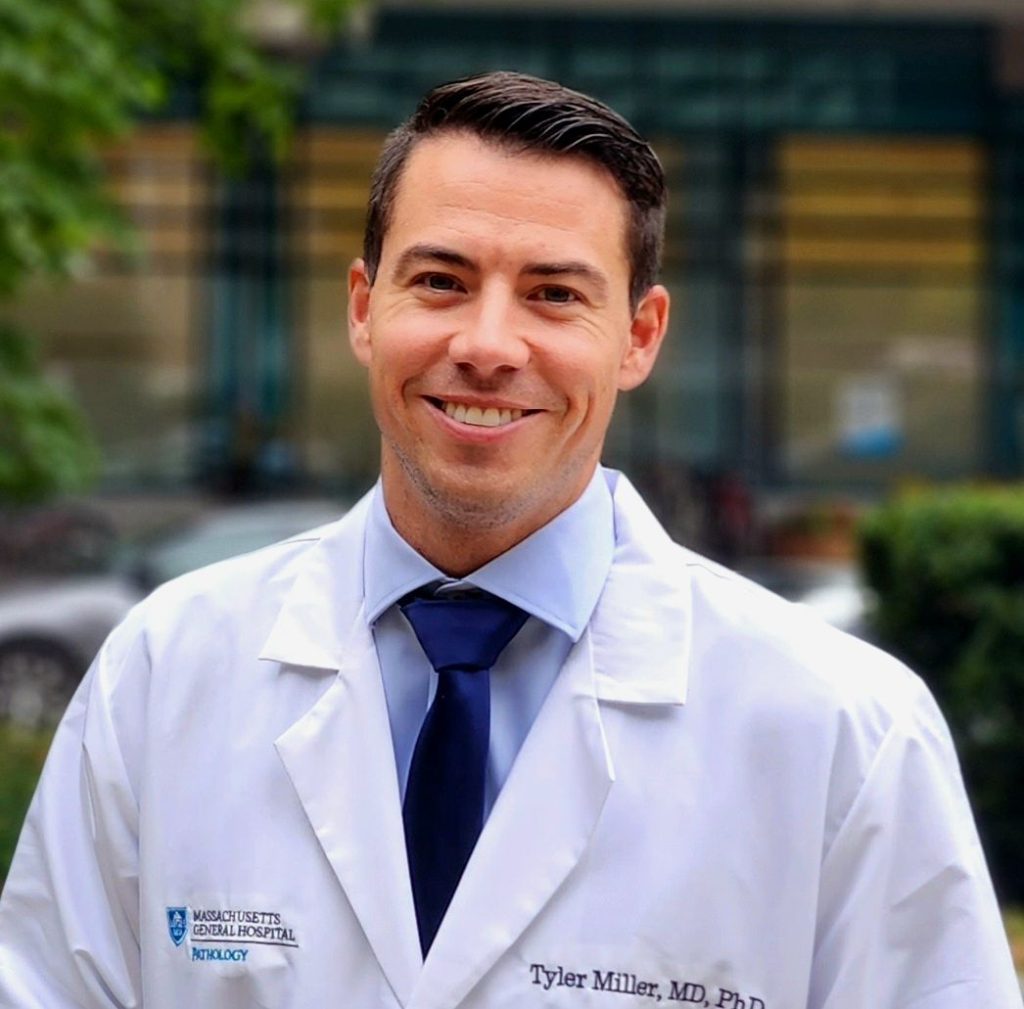
Tyler Miller, MD, PhD
Clinical Pathologist, Research Fellow
Massachusetts General Hospital, Dana Farber Cancer Institute, Broad Institute of MIT & Harvard
2020 Basic Research Fellowship recipient
Tyler Miller calls brain tumor research a “team sport.” As a postdoctoral researcher in the Massachusetts General Hospital (MGH) pathology lab, he’s one of the key players determined to advance brain tumor treatments.
Miller started his career focused on breast cancer, but he made the switch to neuro-oncology while in graduate school.
“I had family and friends who’ve suffered from brain cancer and it was awful,” Miller said. “I wanted to spend my time and efforts trying to make an impact for patients that desperately need better therapies.”
In 2020, Miller was one of two recipients awarded the ABTA Basic Research Fellowship, a two-year, $100,000 grant for post-doctoral researchers who work with nationally recognized mentors in the neuro-oncology field.
Under guidance of his renowned mentor Bradley Bernstein, MD, PhD, of the Bernstein Lab at MGH, Miller studied how the brain’s immune system can better fight off cancer cells in GBM patients.
Specifically, he used a cutting-edge model called the organoid model to study myeloid cells (cells that are part of the immune system that serve to kill cancer cells and foreign antigens). The organoid model involves cutting human brain tumor tissue into tiny pieces and preserving them in an orbital shaker.
"I firmly believe that our best shot at a cure for aggressive brain tumors is by harnessing the power of the immune system through immunotherapy."
—Tyler Miller
This model allows his lab to test different therapeutic strategies on the tissue and see how myeloid cells, T-cells and cancer cells interact with each other outside of the human brain – something that wasn’t possible before.
The challenge: overcoming how cancer cells can create an immunosuppressive response from myeloid cells, effectively blocking their ability to fight off cancer.
Miller’s lab is continuing the work made possible through his ABTA fellowship. He said his initial discoveries have set the foundation for several spinoff research projects.
“The innovative things we’re doing now, I hope, will enable us to make discoveries that lead to better outcomes for patients,” he said.
Miller said he hopes to have a paper out with all his lab’s findings by the end of the year. You can see the latest updates from Miller by following him on Twitter!
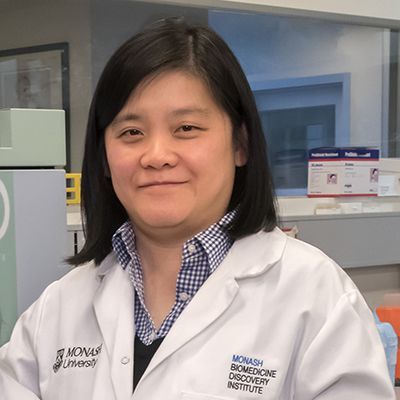
Lee Wong, PhD
Associate Professor, Biochemistry & Molecular Biology
Monash Biomedicine Discovery Institute
Monash University (Victoria, Australia)
2019 and 2021 Discovery Grant recipient
About 10,000 miles away from Boston, Dr. Lee Wong is working in the lab at Monash University to unravel mysteries behind the biology of brain cancers.
Wong took interest in pediatric glioblastoma about 10 years ago after a groundbreaking discovery about this cancer having a mutation of histones (proteins that organize important mechanisms controlling DNA stability).
While searching online for current treatments for pediatric brain cancer, Wong found the ABTA Research Program.
“In the past 20 or 30 years, there have been significant improvements for survival rates among cancer patients, but pediatric brain tumors have remained unchanged. There’s a clear need to develop more therapies in this area,” she said.
Wong applied for and received the ABTA Discovery Grant, a one-year, $50,000 grant for high-risk, high-impact research with the potential to change current diagnostic or treatment models.
Her first project investigated telomeres (caps found on each end of a DNA strand that serve to protect chromosomes). Telomeres usually shorten through aging as cells divide, but cancer cells can avoid cell death by maintaining their telomeres despite repeated cell divisions. Wong was able to construct a cell model to understand how histone mutations destroy normal telomere regulation in pediatric brain cancer – allowing growth of a cancerous tumor.
“Six years ago, we had nothing to start with and needed to build our resources. ABTA funding has allowed us to do that,” she said.
Wong’s research uncovered that the mutation in pediatric GBM shares similar features with acute promyelocytic leukemia — a curable disease in most patients.
Wong received a second Discovery Grant in 2021 to study how treatments used in this form of leukemia could be applied to brain tumors.
“I’m convinced that building sound hypotheses will make real discoveries that have potential to be translated,” she said.
In the next couple years, Wong hopes to establish strong pre-clinical models, and eventually, clinical studies for patients.
“What we achieved through the grant has helped us garner more funding from other organizations across the world and in Australia,” she said.
Wong echoes the importance of collaboration among researchers and clinicians worldwide to better understand and develop treatments for this terrible and complex disease.
“We are building a community with a common goal – to bring cures to patients suffering from brain tumors,” she said. “We’re in it for the long haul with patients and their families.”
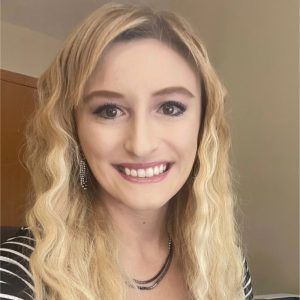
Jessie Schlacks
Jessie is Managing Editor of the bi-monthly e-newsletter MindMatters. Submit story ideas or questions to jschlacks@abta.org.




